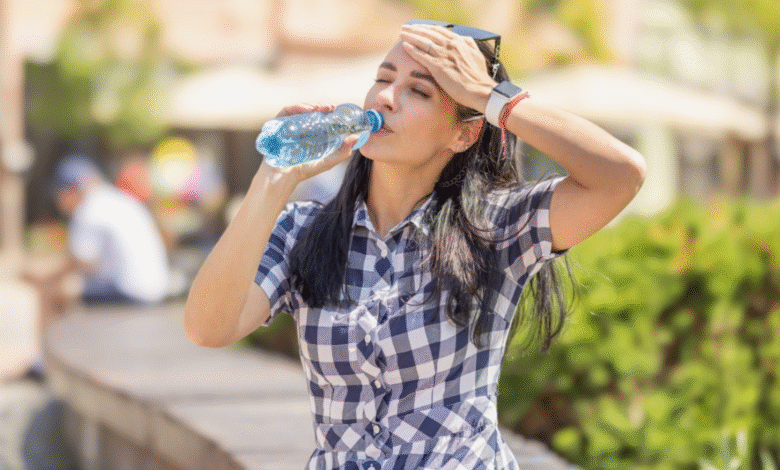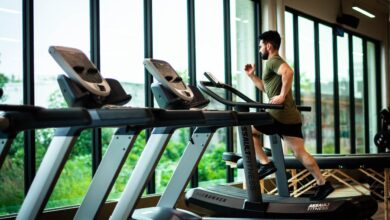Feeling Thirsty? Here’s What You Need To Know About Dehydration

Dehydration happens when your body loses more water than it’s taking in. It can make you feel tired, dizzy, and even sick.
Let’s find out exactly how dehydration works and how you can stop it fast!
What is dehydration and why should you care?
Dehydration means your body doesn’t have enough water to work right. Water is super important. Your heart, brain, and muscles all need water to do their jobs.
Even mild dehydration, just 1-2% loss of body water, can cause tiredness and trouble focusing. More serious dehydration could land you in the hospital.
According to the CDC, 75% of Americans are chronically dehydrated. That’s a lot!
This shows that many people don’t even know they are thirsty until they start feeling bad.
How does dehydration even happen?
There are a few key ways you can lose too much water:
- Sweating a lot: When you play sports or it’s hot outside
- Peeing a lot: Some medicines or drinks like coffee make you pee more
- Being sick: Vomiting and diarrhea can drain your body
- Not drinking enough: Sometimes we just forget to drink water!
Kids and older people are at higher risk. Their bodies don’t store water as well.
Also, kids may not recognize when they are thirsty.
Signs you’re dehydrated (Hint: It’s not just feeling thirsty!)
Thirst is one sign — but it’s not the first one! You can already be dehydrated before you even feel thirsty.
Here are other signs to watch out for:
- Dry mouth and lips
- Headache
- Dark yellow pee, like apple juice
- Feeling tired or dizzy
- Sunken eyes
- Cool, dry skin
Severe dehydration can be dangerous. It can cause low blood pressure, confusion, and even seizures.
In fact, during a heatwave in Europe in 2003, over 70,000 people died because of dehydration and heat-related illnesses. So it’s a big deal!
Why is dehydration so dangerous?
Your body uses water for everything! Water helps your blood flow, your brain think, and your muscles move.
When you don’t have enough water:
- Blood gets thicker and harder to pump
- Brain starts running slower
- Kidneys stop filtering waste properly
- Body temperature gets harder to control
In fact, research shows losing just 5% of body water can drop your physical performance by 30%!
Imagine running with a backpack full of rocks — that’s how your body feels without enough water.
How much water do you really need each day?
You’ve probably heard “Drink 8 glasses a day.” But the truth is, it’s different for everyone.
Here’s a good rule:
- Kids (9-13 years): about 7-8 cups
- Teen boys: about 11 cups
- Teen girls: about 8 cups
- Adults: about 8-13 cups
If it’s hot, or you are very active, you need more.
Also remember — you get water from food too! Fruits and veggies like watermelon, cucumber, and oranges are super juicy and help keep you hydrated.
Best ways to stay hydrated every day
Staying hydrated isn’t hard if you make it a habit. Here are some easy ways:
- Carry a water bottle everywhere
- Drink a glass of water with every meal
- Snack on juicy fruits like watermelon or grapes
- Choose water over soda or energy drinks
- Set a reminder on your phone to drink water
A cool study showed athletes who drank water every 15 minutes performed better and stayed sharper.
Also, if you feel hungry, try drinking water first. Sometimes our body confuses thirst and hunger!
Can you drink too much water?
Yes! It’s called water intoxication or hyponatremia.
This happens when you drink way more water than your kidneys can handle. Your blood gets too watery, and it can be dangerous.
But don’t worry — it’s very rare. Just listen to your body. Drink when you’re thirsty and during meals.
Special times when you must pay extra attention
Some times call for extra water care:
- Hot weather: when it’s sunny and you sweat a lot
- Exercise: if you’re playing a sport or working out
- Sickness: fever, diarrhea, vomiting — all can dry you out fast
- Traveling: dry airplane air can sneakily dehydrate you
During sports tournaments, athletes are at high risk.
In fact, a study on soccer players found that even slight dehydration hurt their running speed and focus.
Parents, always watch kids closely during outdoor playtime!
Popular myths about dehydration
Let’s bust some myths!
- Myth: Only athletes need to worry about dehydration
Truth: Anyone can get dehydrated — even if they’re just sitting! - Myth: Coffee dehydrates you
Truth: Yes, caffeine makes you pee, but the water in coffee still counts. - Myth: Feeling thirsty means you’re already super dehydrated
Truth: Thirst is an early warning; you’re not doomed yet!
Understanding the truth helps you stay ahead and healthy!
Quick Wrap-Up
Dehydration is sneaky but beatable! Here’s your game plan:
- Drink water across the day — not just when you’re thirsty.
- Eat juicy foods like fruits and veggies to help your water levels.
- Pay extra attention when sick, playing sports, or during hot weather.
Water is your body’s best friend. Keep your water levels up, and you’ll feel like a champion every day!
For more information on dehydration and its seriousness, learn when to go to the ER for dehydration.



